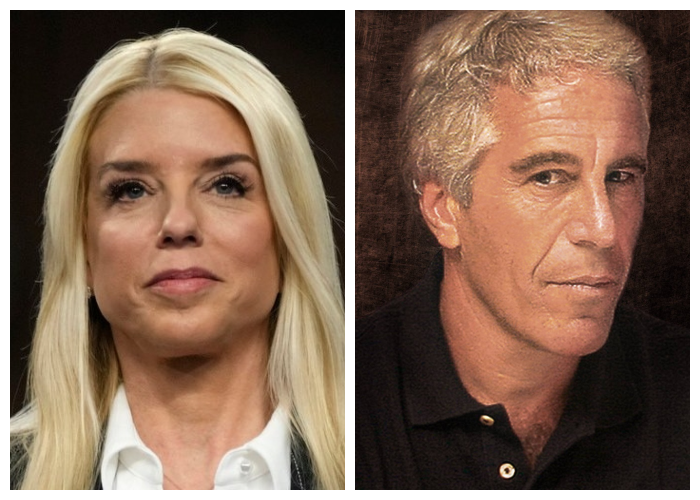It’s beginning to become crystal clear why Attorney General Pam Bondi has yet to release the full caseload of files on serial pedophile and now late Jeffrey Epstein. Apparently, the delay is due to the fact that this case is a helluva lot bigger than anyone could have imagined.
Bondi provided an update on Tuesday at the White House regarding what’s been going on behind the scenes with the release of the files, as ordered by President Trump early in his term, and why we don’t have them yet. “The FBI, they’re reviewing – there are tens of thousands of videos, of Epstein with children, or child porn. And there are hundreds of victims. And no one victim will ever get released. It’s just the volume, but the FBI is diligently going through that,” she said in response to a reporter’s question.
? BREAKING: AG Pam Bondi says that the FBI is reviewing the Epstein Files.
“There are tens of thousands of videos of Epstein with children or child p*rn, and there are hundreds of victims.”
“No one victim will ever get released. It’s just the volume and that’s what they’re… pic.twitter.com/xxr3lbWwOn
— Eric Daugherty (@EricLDaugh) May 7, 2025
Consider that for a moment. As Bondi emphasizes, this case involves hundreds of victims and tens of thousands of videos—an appalling crime on a scale rarely seen. We already know some of the individuals who visited Jeffrey Epstein’s infamous island, and it’s a list that includes some prominent names. While the public has a legitimate interest in knowing who was involved, particularly if elected officials are among them, the rights of the victims must also be protected. The FBI, appropriately, appears to be taking steps to ensure that victims’ identities are not recklessly exposed to the media.
We must not lose sight of the trauma these victims—many of them minors at the time—endured. A powerful and wealthy man, with the help of his associate, lured them to his private island under false pretenses. Now, years later, they find themselves entangled in a global scandal with far-reaching implications. The case involves influential figures, and while there is a public interest in uncovering the full truth, any disclosure of victims’ identities should occur only with their consent and only when legally necessary, such as for prosecutorial purposes. Every video, every image, constitutes potential evidence and must be treated accordingly.
There are also broader concerns. Victims could face retaliation from abusers or be subjected to invasive scrutiny from the media and the public. Unfortunately, this kind of stigmatization remains a harsh reality. It’s neither fair nor just, but it is a factor that cannot be ignored.
While there is widespread demand to unseal the files and reveal the identities of those involved in this criminal network, the FBI must be given the time and discretion to handle the matter responsibly. This includes fully identifying the victims, safeguarding their privacy, and ensuring that, should they be called to testify, their participation is conducted with the utmost care. After all, any defendant is constitutionally entitled to confront their accuser, and that process must be managed in a way that respects the rights and dignity of the victims.
One final thought: If there is a hell, we can only hope that’s where Epstein is right now.



